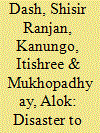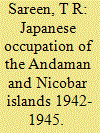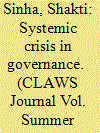| Srl | Item |
| 1 |
ID:
102736


|
|
|
| 2 |
ID:
138235


|
|
|
|
|
| Edition |
revised
|
| Publication |
New Delhi, Life Span Publishers, 2014.
|
| Description |
xii, 324p.Hbk
|
| Contents |
B
|
| Standard Number |
9789381709269
|
|
|
|
|
|
|
|
|
|
|
|
Copies: C:1/I:0,R:0,Q:0
Circulation
| Accession# | Call# | Current Location | Status | Policy | Location |
| 058198 | 940.5405488/SAR 058198 | Main | On Shelf | General | |
|
|
|
|
| 3 |
ID:
111715


|
|
|
| 4 |
ID:
131025


|
|
|
|
|
| Publication |
2014.
|
| Summary/Abstract |
Till a few years ago, the Indian elite had convinced itself that India was already seated at the high table of the international order, that there was something natural and given about lndia's rise. This acute sense of triumphalism was unmistakeable. India in 2007 had reason to be con?dent. It was growing fast and furious, had lifted hundreds of millions above the poverty line, and was being courted by leading economies and large investors and the India story seemed a perpetual best-seller. The 2008 trans-Atlantic monetary crisis saw the rich countries go into economic decline whilst India recovered quickly and grew faster than before. The clear conviction was that India had decoupled itself from its economic partners in Europe and North America, and was itself an engine of global economic growth. The fact that China also grew faster than before convinced many that the West was in terminal decline and the future of Asian dominance had arrived. The hubris was not long in coming. Indian policy-makers did seem to have not taken notice of the fact that the high growth of Gross Domestic Product (GDP) post-2003 had resulted Mr Shakti Sinha is former Principal Secretary (Power 8: Industry), Government of National Capital Territory of Delhi and former Chief Secretary, Andaman 8: Nicobar Administration.
|
|
|
|
|
|
|
|
|
|
|
|
|
|
|
|